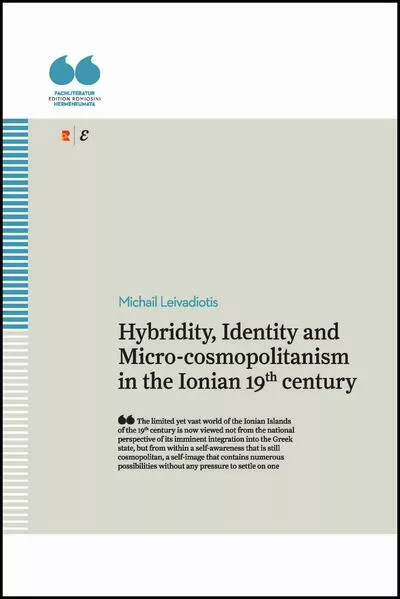
- Publikationen ca: 1
- Fragen & Antworten
Michail Leivadiotis
Michail Leivadiotis is postdoctoral researcher at the Cluster of Excellence 'EXC2020 Temporal Communities’, Freie Universität Berlin. His work is centred around cultural mobility and the political and aesthetic parameters of Byzantine cultural heritage management programmes as emerged from the encounter between Byzantine scholars and western Humanists, eastern medieval imagery and Italian Renaissance, classical tradition and early modern Europe. Previously, he worked as Research Assistant (2017-2020) at the same University in the Project: "Viaggio da Berlino a Zante or Romantic Poetics and German Idealism on the Ionian Islands", financed by the Einstein Foundation, where he pursued research on Identity, Hybridity and Cosmopolitanism in the context of cross-cultural communication between Greece, Italy and Germany in the 19th century. In 2016 he received his PhD with a dissertation on cultural transfer and poetics. His work focused on manuscript translations of German speculative philosophy and romantic poetology, realised by N. Lountzis for poet D. Solomos. Within this framework, he received a Research scholarship by Elsa-Neumann-Stipendium and studied as a guest fellow at the Scuola Normale Superiore di Pisa (Italy). In 2004 he received a Master's degree in Translation Theory at the University of Rome "La Sapienza" (Italy). His thesis presented the first Italian version of the script of Theo Angelopoulos' movie The Reconstruction. In Venice, he received a Professional degree (2003) in Museology, and worked at the Foundation Musei Civici Veneziani (Museum Correr), where he specialised in cataloguing of ancient books (1500-1800). He studied Medieval and Modern Greek Philology at the University of Ioannina (Greece)
Hybridity, Identity and Micro-cosmopolitanism in the Ionian 19th century
The Ionian Islands, a complex of seven islands off the west coast of the Greek peninsula, historically and culturally constitute a contact zone between the Greek-speaking world and the West. In the 19th century, the islands, a former Venetian colony, experienced French and British colonial power before their incorporation in 1864 to the Greek state.
